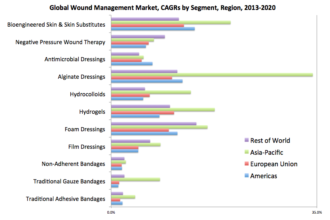A couple of years ago, my clinical practice (Dermatology Associates at Massachusetts General Hospital) began sending patients a bill when they did not show up for an appointment. Dentists do this with some frequency, but it’s unusual for a physician practice to do it.
A couple of years ago, my clinical practice (Dermatology Associates at Massachusetts General Hospital) began sending patients a bill when they did not show up for an appointment. Dentists do this with some frequency, but it’s unusual for a physician practice to do it.
Our reasoning was that we have many folks who insist they need to be seen right away and, despite a large, busy practice (we see more than 1,000 patients each week), we still have a long wait time for appointments. Our practice used to overbook slightly (like the airlines) and count on a few no-shows. Every now and then, everyone would show up for their scheduled appointments and we’d have to deal with understandable patient frustration at the long wait times in the office.
Since implementing the ‘bill for no-show’ policy, our no-show rate has decreased. This is an illustration of the well-studied psychological concept that if you give something away it has no value. People, it seems, were routinely making appointments with dermatologists all over town and taking the one where they got in quickest, not bothering to cancel the rest. Since we began informing patients of the consequence of not showing up, we’ve had more engagement around keeping appointments versus canceling.
In contrast, there is a famous project from the city of Ashville, NC, where a large, self-insured employer made history by implementing a system that waived co-pays for medications for certain chronic diseases. The poster child for success was type II diabetes. So, it seems we have a case here of giving something for free and improving engagement.
Finally there are a few studies (among them research done at Partners Connected Health) showing that compensating patients with a small financial incentive can improve adherence.
All this makes my head spin. The conventional wisdom seems to vary from asking people to pay to keep them engaged (‘skin in the game’), to giving something away to remove a barrier, to paying people for achieving a behavioral goal…. Is one of these based on better evidence than the rest?
Maybe there are other variables. In the first example, the patient was motivated enough to call an office to make an appointment. Presumably there was some anxiety or physical symptom of concern. In this case, the patient already has skin in the game in that she wants to get a question answered or a problem solved. This is important, especially as we deal with chronic illness. So much of early stage chronic illness is asymptomatic. In fact, the habits that lead to chronic illness (smoking, excess calorie intake, etc.) all have reward systems of their own. When you are already motivated to achieve an outcome, we can probably expect that you would be willing to make a financial commitment as well (copay, missed appointment fee, etc.).
The Asheville project was multifaceted and the biggest part of that intervention featured high-touch pharmacist involvement with patients. Maybe we could say that, in the case where you have a recurring, engaging interaction with a provider, the idea of waiving co-pays makes sense. Our research shows that interaction with a care provider is a powerful stimulus to improve adherence. In that context, it may make sense to give medication away because the pharmacist is ever-present to remind the patient to take it. In this case, the waived co-pay may indeed be perceived as a gift and a motivator rather than a communication that the medication has no value.
The last example is most vexing to me. I believe the preponderance of behavioral research shows that financial incentives are weak long-term motivators. They get your attention early on, but over time they become expected and if taken away can have a significant negative ‘boomerang’ effect.
All of these are important to think through. As health care providers take on risk for population health, we’re actively considering these matters.
One of the earliest forms of physician payments for achieving desired financial or clinical outcomes is ‘pay for performance.’ In this setting, the physician receives a bonus payment if you reach certain quality or efficiency targets. Some of my more savvy colleagues have asked, wryly, over the years, “Why don’t we have pay for performance for our patients?” What they are pointing out, of course, is the irony of being held accountable for health outcomes — many lifestyle related — for a population of individuals where you have no control over their lifestyle.
As we move in the direction of taking more risk, we are seriously considering how to incentivize patients to adhere to their care plans. This is a topic area where I have some instincts, but confess to not having the evidence to make a case for any of these tactics:
Charge patients to insure skin in the game?
Give them medicine and services for free?
Pay them to be adherent?
I’ll bet many of you know the obvious answer. Let us know.








